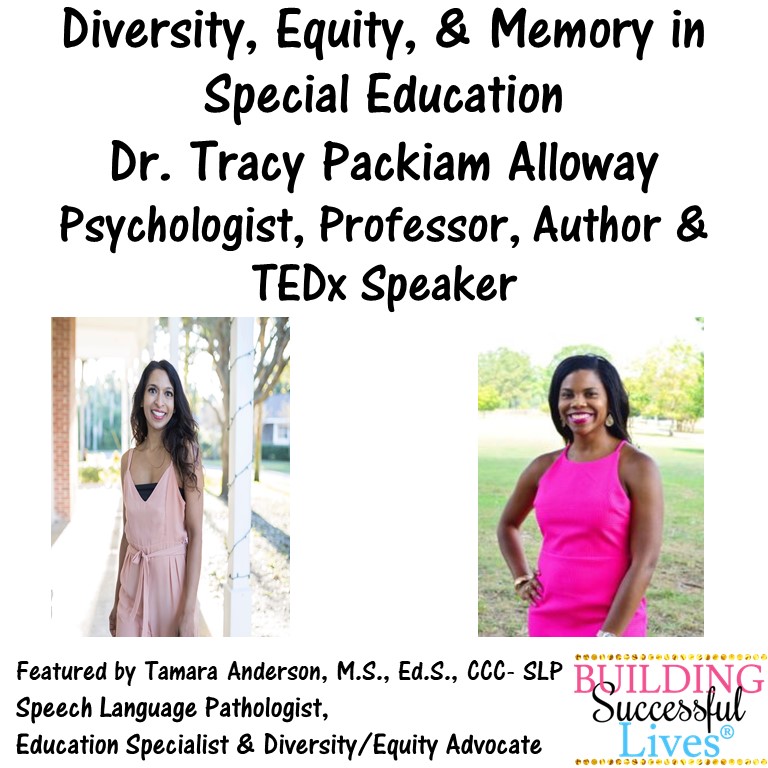
On April 5th, 2021, I interviewed Dr. Tracy Packiam Alloway, an award winning psychologist, professor, author, and TEDx speaker. She has published 15 books and over 100 scientific articles on the brain and memory. She has provided consultancy to the World Bank on reading in developing countries and is a sought after speaker internationally. In this interview, she explains the types of memory, the impact of memory on children with language impairment, learning disabilities, and autism. Dr. Alloway describes the best ways that speech language pathologists, teachers, and parents can assist children with special needs improve their memory skills. Memory is definitely an area that can improve with targeted practice and is essential for successful communication, language, literacy, academic, and life success! Dr. Alloway discusses slow, medium, and fasting acting working memory tips that can stimulate memory neurotransmitters and lead to positive results.
Additionally, you will learn how professionals can ensure that children and adolescents receive tailored and equitable interventions that truly lead to measureable and lifelong gains. Children with special needs may have language weaknesses as well as memory strengths. For example, autistic children may have above average memory skills while others may have auditory memory and visual memory difficulties. Did you know that visual memory deficits may contribute to pragmatic language and nonverbal challenges? Many children with language disorders also have auditory memory challenges. It’s important for clinicians and educators to understand a child’s ability to encode and retrieve information. It is important to evaluate a child’s memory profile without semantic features as well to gather a clear understanding of a child’s memory abilities. Psychologists have the knowledge to effectively assess this information and the results gathered are important for teams working with children with special education needs. Speech/language pathologists may observe language and auditory memory difficulties during phonological awareness, receptive language, expressive language, and pragmatic language evaluation and therapy in children and adolescents.
Watch this interview to access this information, success keys for children and adolescents to excel academically, socially, and emotionally, and much more! Dr. Alloway’s research has also been featured on BBC, Good Morning America, the Today Show, Forbes, Bloomberg, The Washington Post, Newsweek, and many others. You can learn more about her research and transformational professional work on her website.
You may access an effective informal auditory memory assessment here and listening comprehension/auditory memory bundle here.
All the best,
Tamara Anderson, M.S., Ed.S., CCC-SLP
Speech Language Pathologist
Education Specialist & Consultant
Diversity & Equity Advocate


